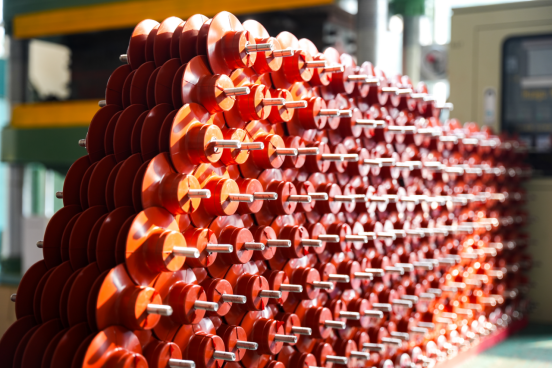
High-voltage arresters are critical for protecting electrical systems from lightning strikes, but their failure during storms can lead to catastrophic equipment damage and grid instability. Based on engineering standards and failure analyses, here are the root causes and solutions:
1. Surge Energy Overload: Beyond Design Limits
- Cause:
- Lightning currents exceeding arrester's energy absorption capacity (e.g., >100kA for direct strikes), causing thermal cracking of ZnO valve blocks .
- Rapid voltage rise rates (>2.5 kV/μs for 6.9kV systems) overwhelming response times .
- Fix:
- Select arresters with higher MCOV (Maximum Continuous Operating Voltage) and energy ratings (e.g., Class II arresters for wind farms, rated ≥10kA).
- Pair with surge capacitors to slow voltage rise rates .

2. Insulation Degradation: Moisture & Contamination
- Cause:
- Seal failure allowing moisture ingress, triggering internal tracking or explosive punctures .
- Salt/fog pollution increasing surface leakage currents, leading to flashovers .
- Fix:
- Use silicone-housed arresters with IP67 rating for coastal/offshore sites .
- Apply RTV coatings to suppress pollution-induced discharges .
3. Leakage Current Runaway: Aging & Temperature
- Cause:
- ZnO valve block aging under repeated surges, increasing resistive leakage current (>500μA) .
- High ambient temperatures (>60°C) lowering ZnO resistance, accelerating thermal runaway .
- Fix:
- Install online monitors tracking resistive leakage; replace if current doubles.
- For desert/solar farms, choose SiC-hybrid arresters stable up to 200°C .
4. Installation Defects: Grounding & Mechanical Stress
- Common Errors:
- Ground lead impedance >5Ω, delaying surge dissipation .
- Base insulator cracks causing partial discharges during wet conditions .
- Fix:
- Keep arrester ground leads ≤3 ft, bonded directly to equipment ground .
- Use stainless steel bases with anti-corrosion coatings .
Minrong lightning arrester production process video playlist ← Click here to watch the video
Oil&Gas exploited
Automotive Manufacturing
Transportation & Dlistrlbutlon
Manufacture
Industrial Construction
Green Energy
Copyright ? 2024 All Rights Reserved
Back to top 
Comment
(0)